What is the impact of phytogenic compounds on sows and piglets?
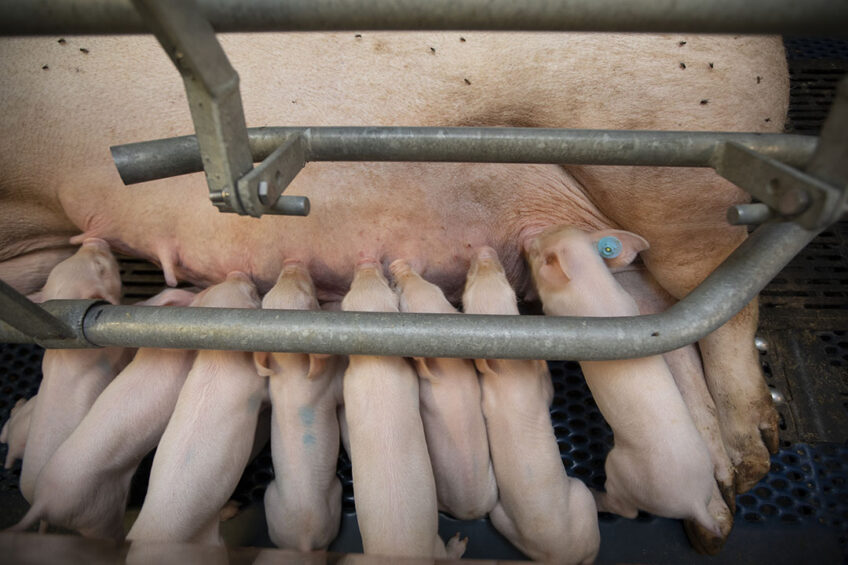
Researchers from Brazil evaluated the effect of phytogenic compounds in the feed of lactating sows on the performance parameters of lactating females and suckling piglets.
In modern swine production systems, hyperprolific lactating sows require high nutritional intake due to increased milk production. However, voluntary feed intake is insufficient, which leads to metabolising body reserves. This culminates in a negative energy balance, reduced reproductive and growth performance, oxidative stress, and changes in the behaviour of sows. These changes include moving around after farrowing, potentially crushing, and causing deaths of piglets. Therefore, it is required to increase feed intake during the lactation phase. It is also necessary to improve gut health and behaviour of sows, and improve litter performance. Phytogenics are natural compounds based mainly on plant extracts. They exhibit antimicrobial, anti-inflammatory, and antioxidant actions. Their immunomodulatory characteristics are useful in the feed of sows in the lactation phase.
Data collection
For their study, the researchers used 93 lactating sows of different farrowing orders from a hyper-proliferous commercial lineage. They measured the ambient temperature and relative humidity of the farrowing stalls at 5 minute intervals. The team distributed the sows into 2 experimental treatments. The first had sows that were fed the control diet. The second contained sows that got the control diet and phytogenic compounds. These contained a proprietary mix of caraway essential oil, thyme essential oil, anise essential oil, orange essential oil, mint essential oil, and licorice extract.
The team collected blood samples to measure serum concentrations of urea, total protein, albumin, aspartate aminotransferase, glutamyl aminotransferase, creatine kinase, triglycerides, total cholesterol, and glucose. They determined the total crude protein, fat, lactose, degreased dry extract in the sow milk. In addition to this, they recorded sow behavioural activities and weighed all sows after farrowing and weaning to verify body mobilisation. They evaluated the daily feed intake and the milk production of the females during the entire lactating period. Researchers weighed piglets to determine the weight gain during the period between one day after farrowing and weaning. They also recorded the frequency of diarrhea and the mortality rate. The behaviour of the litter including the number, interval, and duration of suckling were evaluated.
Impact of phytogenics on the performance of sows
Supplementation with phytogenics did not affect the weight of sows during lactation or feed intake but increased milk production by 1.71 kg/day.
Impact of phytogenics on the composition of milk and blood parameter
Phytogenic supplementation decreased the concentrations of lactose in sow milk. Sows receiving the treatment of phytogenic compounds presented higher crude protein levels in the milk collected at weaning. This response is associated with the highest serum concentrations of total proteins in sows that received the phytogenic compounds. Adequate protein intake resulted in better milk quality, body condition maintenance, and greater circulation of serum urea, a marker of hepatic protein synthesis.
Impact of phytogenics on sow behaviour
Phytogenics supplementation increased water intake, inactive behaviour (when the sows were fully lying ventral or laterally with their eyes closed and without oral activity), and breastfeeding, and reduced inactive alert behavior (when the females were standing still, lying down, or sitting with their eyes open) in sows.
Impact of phytogenics on litter performance
Supplementing sow diet with phytogenics increased the average litter weight, average piglet weight, and daily weight gain of litter at weaning. In addition, the use of phytogenics reduced the incidence of diarrhea due to antimicrobial action, increased the suckling duration, and reduced the interval between sucklings. Furthermore, phytogenic supplementation improved litter uniformity, reduced the percentage of piglets smaller than 4.90 kg at weaning, and increased the percentage of piglets larger than 6.10 kg. This was likely due to the higher milk production of sows and the milk quality.
The authors concluded that “phytogenic compounds yielded greater milk production, maintained the body condition of sows stable, and improved the performance of the litters until weaning”.
 Beheer
Beheer

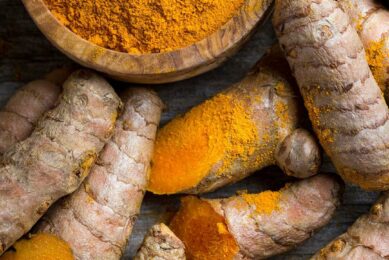
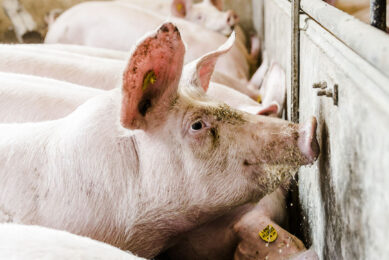
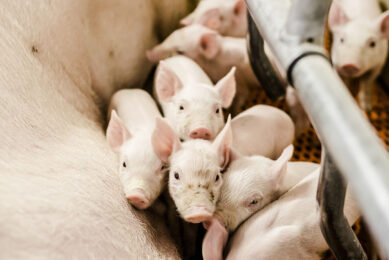
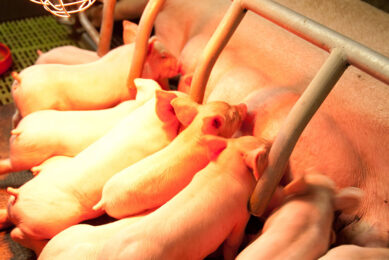



 WP Admin
WP Admin  Bewerk bericht
Bewerk bericht